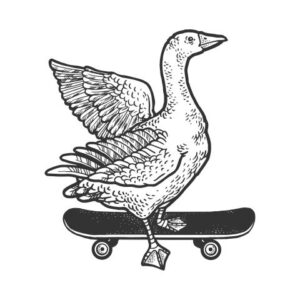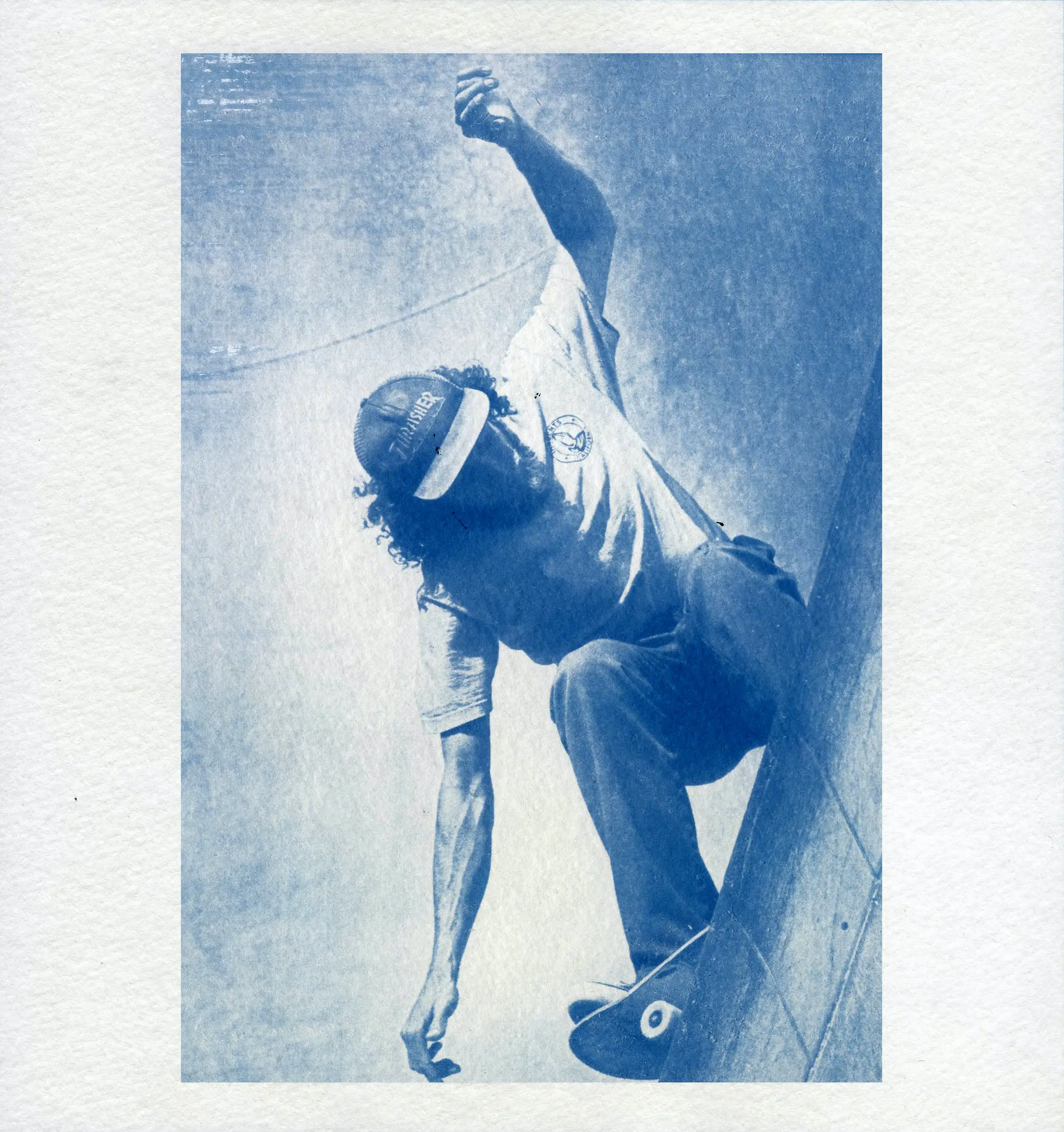Can Adults Learn to Skateboard?
I am an adult who learned to skateboard. I had some experience from elementary and middle school, but I basically had to restart from scratch.
Adults can learn to skateboard as long as they are physically healthy enough to do so. There are often adult skate classes and adult groups at local skateparks. There are communities of older skaters all over so don’t feel discouraged. If you have the desire to skateboard and are physically healthy enough then you can skateboard.
For most people, this question comes from a lack of confidence. They feel like they might be judged or that only teenagers skateboard. Adults can learn to skateboard like adults can learn to do anything else. There are so many examples of adult skateboarders and people learning skateboarding for the first time as an adult.
If you’re interested in learning to skate as an adult, check out my guide about the realities of skateboarding as an adult.
9 Tips for Adult Skateboarders
These tips are from my own experience of starting to skateboard again as an adult. While I had some experience from skating in elementary and middle school, I had to basically learn from scratch starting with getting comfortable on my board and then an ollie.
I personally started again while I was in grad school at the age of 25. Not so old, but old enough to question myself as I stepped into a skate shop for the first time in 13 years.
I’ve since had a great time learning to skateboard though and believe there is no reason adults shouldn’t give skateboarding a go. Here are the tips I’ve learned along the way.
1. Wear the Safety Gear
As an adult you will get beat up easier, you will recover slower, and the falls will hurt more. And trust me, you will fall. Every skateboarder does.
Your body isn’t what it used to be even if you actively exercise, stretch, and eat healthily. You need to take this into account now and not what until you get your first bad fall or injury.
Beginners should wear a helmet, wrist guards, knee pads, and elbow pads. Once you become more experienced, not all of these pads are necessary. For flatground skateboarding, I might only wear a wrist guard on my left wrist, but I’m not quite a complete beginner anymore.
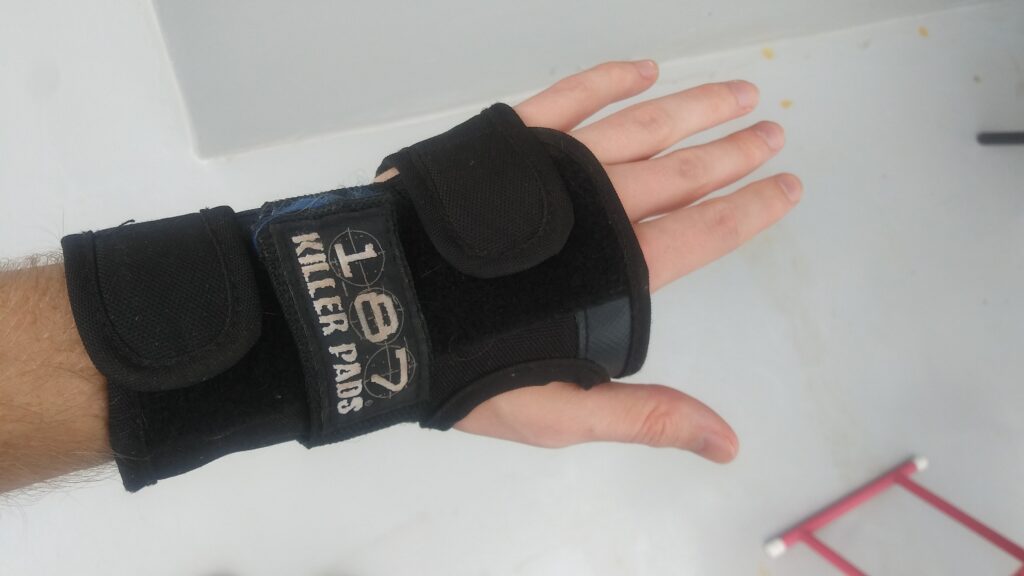
If you want a breakdown of skateboarding safety gear, how much it costs, and if you need it, check out my safety gear guide.
2. Don’t Push Yourself
You are going to get excited once you buy your first skateboard. You have probably been watching skate videos, movies, or playing skate games and are eager to kickflip over curbs.
The reality of this is that you will need to walk before you run. You will imagine riding smoothly, cruising, and popping high ollies, but that is months or even a year away.
You’ll first struggle to stand and push off with your board. Then you struggle to ride comfortably and kick turn. Then you’ll struggle to learn even simple tricks.
It will make you feel impatient, but don’t be. Skateboarding, like all things, takes time. Enjoy the process and sooner than you think you will be doing kickflips over those curbs.
Pushing yourself too hard is just asking for an injury.
3. Accept That You Will Progress Slowly
Good things take time.
Personally, I tend to get obsessed with a new hobby or goal and then overdo it right away. I expect to see fast progress and I push myself to make it happen.
So when I started skateboarding again as an adult, I felt frustrated with how slow I was progressing. I had to relearn from scratch basically when I was hoping to be carving, cruising, and popping tricks after a month or two.
This just isn’t the case.
Yes, you can be ding those things after a month or so, but once you first learn a trick learning it well is a whole other game. The time it took me from being able to ollie to being able to ollie well while moving fast was much longer than first learning the trick.
So accept the fact that you will progress slowly. You’re an adult whose body is slower to heal and who has a busy adult schedule. It is what it is.
4. Celebrate the Small Victories
If you are progressing slowly it can be frustrating.
The key to enjoying the early stages of skateboarding is to celebrate the small victories. Your first shuvit or your first time cruising without falling.
Honestly, skateboarding from the beginning is very enjoyable and will only get more fun as you progress. Don’t worry about the more experienced skaters you will see. Enjoy the progress that you’ve made and go ahead and be happy.
It doesn’t matter how you are compared to others. It only matters that you are enjoying yourself. If you have improved in your skateboarding even a little, then you should be happy. Skateboarding is not easy.
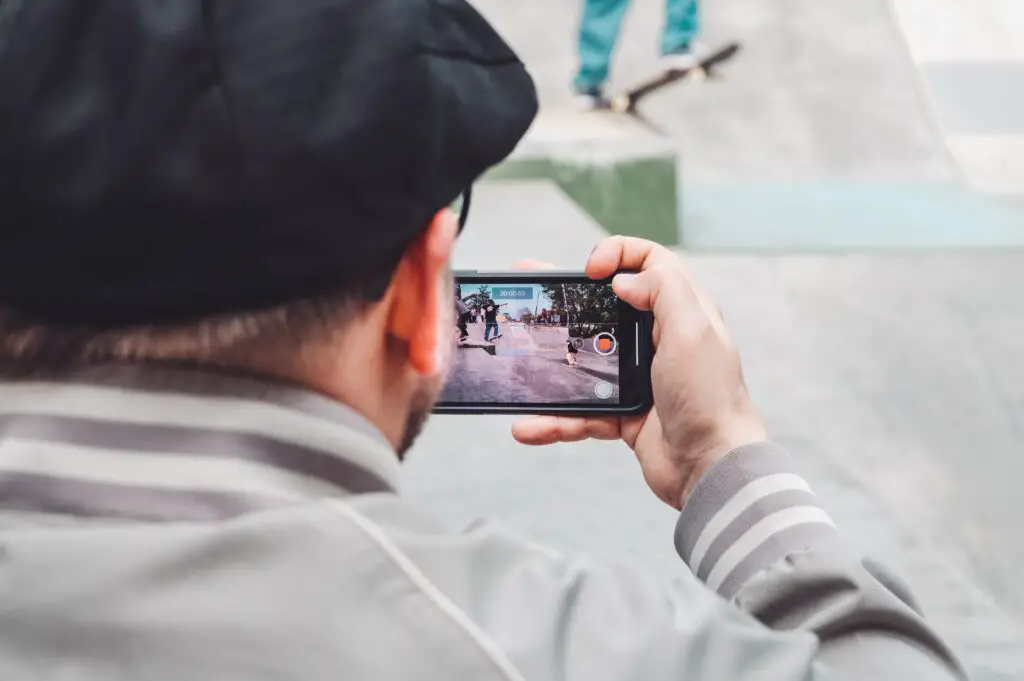
5. Learn Flatground Tricks
If you only want to cruise with your skateboard, then that’s completely ok. Cruising in itself is extremely rewarding and fun to do. A friend of mine and I regularly meet to cruise and explore Seoul, South Korea as we’re both ex-pats living here.
However, I love the feeling of struggling with and finally getting a trick. I recommend flat ground tricks because you can practice them absolutely anywhere. You can do them while you’re cruising for the most part and they give you a great sense of progression.
To start just learning a shuv-it is a good beginning. However, if you want to learn any complex tricks then you will need to be able to ollie. There are plenty of great ollie tutorials out there, but I’m hoping to make an original tutorial soon so look out for that.
6. Go Cruise
Cruising on a skateboard is enough to make learning to skate worth it.
I love cruising along in the city and finding new areas and places that I’ve never been to. I just love exploring and cruising on a skateboard is a perfect and intimate way to explore a city.
You can meet up with a friend and go like I often do or you can pop in your headphones and go ride solo. I love to meet my friend, cruise and explore, and then get lunch or dinner at a new restaurant. We’ve found some pretty interesting spots that way. Just make sure your city is safe enough to do that.
If you are going to cruise with a skateboard, I recommend that you replace the traditional hard skateboard wheels with the larger and softer longboard wheels. Most streets are designed to be skated and are so rough that you will be using every 10 feet. This can ruin the experience of cruising around your city.
Personally, I have a cruising set-up with longboard wheels and a separate set-up I use for tricks. This can be expensive though so don’t worry about having two boards quite yet.
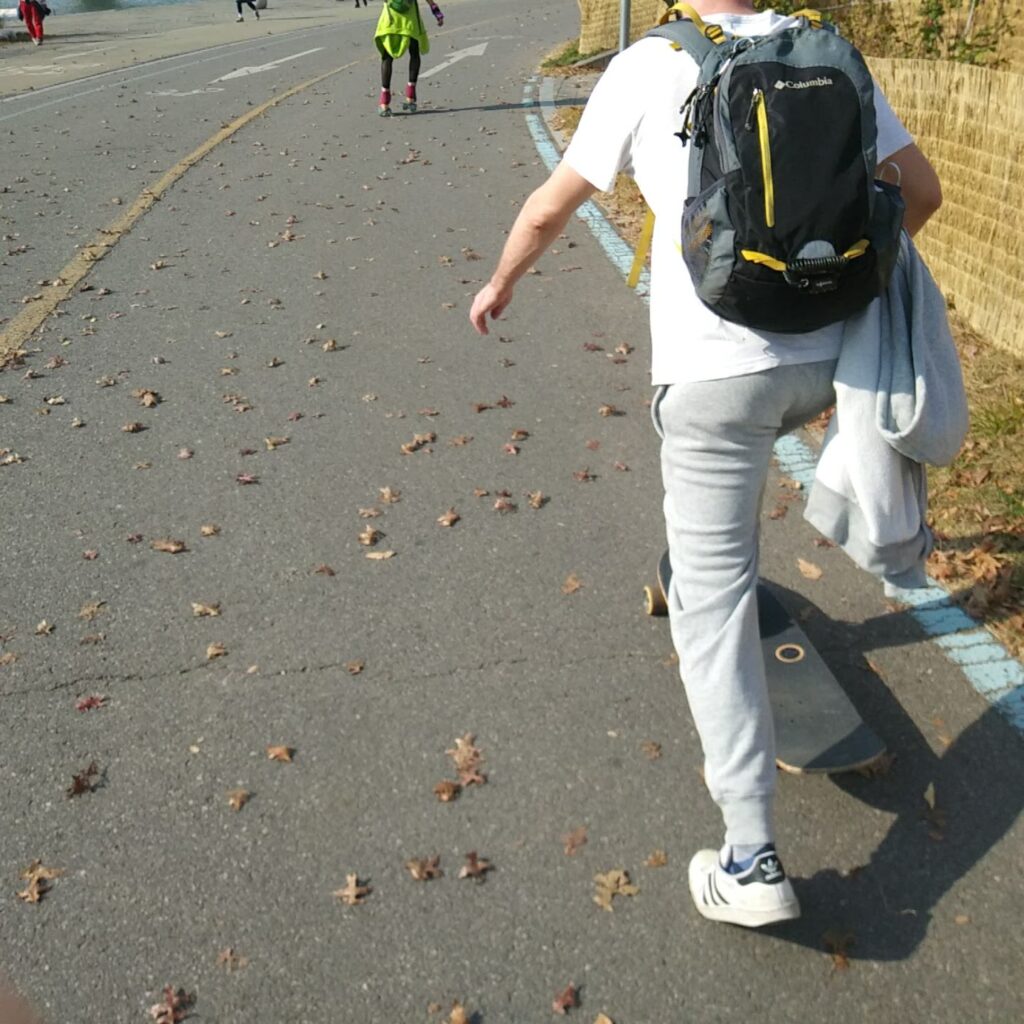
7. Connect with Other Adult Skaters
Happiness is better shared.
Someone told me that while I was hitchhiking in Iceland a long time ago. I never forgot it because he has been proved right again and again.
It applies in almost all aspects of life and especially with skating. I do love skateboarding alone, but skating with a friend is better. You have someone to video you, to cheer when you land a trick, to motivate you, and to relax and take a break with.
Skating friends become close pretty quick as there really is no pretense with skateboarding. You will struggle with it, you will fall, and you can’t really keep up appearances as you slam into the concrete.
I love that about skateboarding. It really reminds me of how team sports bring people together. You struggle, sweat, and compete together and you see each other’s good and bad moments.
Skateboarding is raw and skateboarding friends are typically genuine. They will also make your skating session a lot more enjoyable.
8. Video Yourself
Something I cannot suggest enough is to video yourself.
Even if you are an absolute beginner, videoing yourself will help you appreciate how far you’ve come. Having skate clips is so fun to do. You don’t need to be amazing, but just videoing occasionally as you have fun with friends or do simple tricks will be great to look back on later.
Even if you are skating alone, you can video yourself. Buy a tripod for your phone and take some video. Most phones have great quality cameras so don’t think you need a GoPro or a fancy camera to start. Whole movies have been filmed on phones.
Additionally, if you are struggling with a trick, it is much easier to see what you are doing wrong with a video clip.
9. Stick With It
Learning anything takes time. You also might have setbacks such as injuries or busy times at work.
But you should give it time. So many people start something only to quit just a month or two later. If you tried it and instantly think skateboarding is not for you then that’s fine.
However, if you have a desire to skate, give it time. Try and skate two or three times a week for a year. Then look back at an old video and see how far you’ve come.
It’s a long life and a year isn’t so much to commit to trying and learning something new. The further you go the more you’ll appreciate the journey and the more surprises you’ll come across.
So yeah. Please stick with it. Even if you get frustrated with your progression from time to time.
Am I Too Old to Skate?
This question is a bit off of the mark. Your age doesn’t stop you from skating. Your physical health does.
There are examples of people learning to skate in their twenties, their thirties, their forties, and even their fifties. If someone has the desire to skate, the time in their schedule, and is physically healthy enough for light exercise then they can skateboard. Adults need to be more conscious about safety gear and listen to their bodies while they skate.
So ask yourself. Am I healthy enough to skate? If you don’t know what that means then the following list of questions should give you an idea.
- Am I flexible enough to squat down?
- Do I pull my lower back easily?
- Am I able to do light exercise such as jogging?
- Are my ankles easily sprained?
- Am I a healthy weight?
Of course, if you find yourself having one or two physical difficulties, then that won’t stop you from skating. Just be aware of your body and your limitations. A great option for adults is to just cruise on a skateboard. There is something very freeing about cruising through the city and you’re unlikely to injure yourself while cruising.
In some cases, skateboarding can help you become healthier as it is a type of workout. Particularly for people who are overweight, skateboarding can be beneficial. Just understand that your weight will make tricks very difficult to do.
Examples of Older Skaters
Here are a few examples of skaters who started a bit later in life. This list is brief and far from exhaustive. It’s just so you can see that there are people doing this and you can too.
Learning to Skateboard in Your 20s
Learning to skate in your 20s is easy. You’re still young and as long as you haven’t abused your body significantly there is nothing stopping you from learning to skate. I also relearned in my twenties and while I’m not filming any skate parts anytime soon I have a lot of fun on my board and am still learning new tricks.
I plan on filming myself more starting this next month and will update this post when I get a little progression video filmed. I am 27 years old as of writing this.
Learning to Skateboard in Your 30s
Learning for the first time in your thirties is a bit harder. This is around when your body slows down, but it shouldn’t stop you from giving it a go. Older skaters need to be more conscious about safety and not push themselves too hard.
You need to be realistic about what is achievable for you. Remember it’s not age that stops you from skating, it is your physical health.
This video is pretty well shot and shows someone trying to learn tricks at 30 years old. Check it out.
Learning to Skateboard in Your 40s
Everything I said about skating in your thirties applies, but even more so. You need to be realistic with yourself about your physical health at this age. It might be best to only cruise or learn transition. Flatground tricks can be rough on the knees and body.
That being said of course there are people out there learning in their 40s.
Learning to Skateboard in Your 50s
Most skaters who are skating in their fifties have been already skating for decades. Tony Hawk and Tony Alva are two prominent examples.
It is at this point, even if you are healthy and regularly exercise, you should cautious about deciding to begin skateboarding. There is a lot of risk involved in skating and you need to be certain that you are willing to take that risk.
For most people with a family and other responsibilities, the answer will be no.
That being said, if you do decide to give it a go, I would suggest just cruising. Your body won’t handle the slams required to learn transition skating or tricks. Braille makes a good video about what to consider as an older skater.
Learning to Skateboard in Your 60s
At this point, I wouldn’t advise skateboarding, but there are still skaters out there doing their thing. Though they are more of an oddity than anything else.
Check out 62-year-old Neal here:
Conclusion
Alright, so that’s really it. I always encourage adults to give skateboarding a try and often bring new friends along cruising with me.
There definitely is an adult community out there and your age is no reason not to give skateboarding a try. Give my tips a try and I’m sure you’ll have a great time like I’ve had.
Thanks for reading and look out for more content from Board and Wheels.
